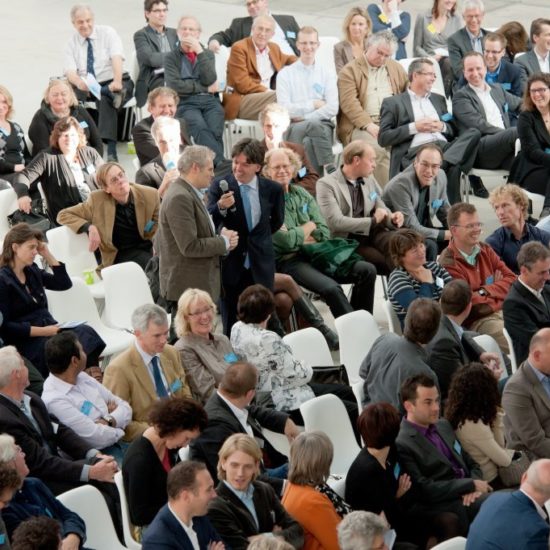Divided into a number of categories, every participant in any meeting or event has the right to:
Belonging.
The right to:
- Be seen, heard and loved: meetings can only be truly successful if all participants feel included, welcome and safe
- Be part of a temporary tribe: every participant should feel part of the group for the duration of the event. We should know who is in the room and why.
- Participate, or not: whether a participant joins in is entirely their decision.
- Meet, greet and get to know the right people: new people, interesting people that could add value to their raison d’etre.
- Have the right people in the room: we shouldn’t talk about stakeholders but with them.
- Have their needs and requirements acknowledged.
- Emotional connection: in great meetings, we feel touched. We laugh, we cry, you name it.
- To be questioned rather than judged.
Purpose.
The right to:
- A clearly defined objective: the outcomes of the session (and any sub-sessions) should be clear, smart and applicable. Information, inspiration and networking are NOT objectives, they are means to an end.
- A balanced program: meetings should be carefully considered and designed, rather than just thrown together. Forget default, choose design.
- Have all stakeholders present, when called for.
- Enough time to give everything time: all too often, things get crammed into short timeslots.
- Clarity on roles: participants should know what they can contribute and what is expected of them. In return, they have the right to know what the event will bring them.
Providers.
The right to:
- A moderator: someone who is carefully selected and well prepared, to make sure that everything runs according to plan (unless the plan is not working out) and that everyone feels part of the event.
- Speakers/content providers who are carefully selected, briefed, and prepared: we should stop bringing random people to stage who have no clue why they are there and what they add to the program. We should stop speakers from just doing what they always do.
- Carefully curated content: every piece of information, question or topic should support the participants’ needs and the objective of the session.
Formats.
The right to:
- Interaction that adds value, instead of a random selection of ‘fun’ formats. Interaction should never be there included for the sake of it.
- Real interaction and genuine engagement, instead of the fake alternative we all know. Connecting and interacting takes time!
- Effective networking: getting to meet and know people should be an integral, well-designed part of the program, rather than just throwing a random bunch of people in a room with drinks and hoping for the best. Effective networking is more than just dedicated networking moments; it should be integrated in the program.
- Be physically active: it is a well-known fact that sitting and listening is the worst way of learning. We all know that our body needs to move every once in a while to keep the mind active.
- Personal time: we all need to alternate periods of hard work with time to relax, think, digest, reflect, do nothing, etc.
- Be surprised: offering new formats improves our ability to learn, change, cooperate and so on.
- Better panels: we all know that panels are what participants hate the most. We also know that this doesn’t have to be the case.
- Better formats: let’s move away from speakers as the default and look beyond all the formats we have used a million times. We need to find the perfect format for every program or program element, every time.
- Entertainment that makes sense: opening with fireworks and then switching to ‘death by boring’ is offensive, using energizers to cover up poor content is criminal, and using entertainment to wake people up just before drinks is very poor design. Participants should be energized by content, formats and learnings; not by energizers.
- The use of appropriate tools: voting and engagement apps are often used as a gimmick to create the illusion of interaction.
- Stillness and slowing down. A dynamic event is not ‘everything at high speed’ (which has become default). Dynamic means: every part of the program has the required tone, pace and style.
- The right venue, the right seating: scene setting and room design have an underrated influence on results. Select and design the meeting space to fit the content and format.
Ownership.
The right to:
- Know what will be done with the results or outcomes.
- Say no, disagree.
- Be who they are.
- Be in charge of the meeting: we should ask participants what they want more often instead of just executing the script.
- Be outspoken: every voice counts, every opinion counts.
- Ask questions.
- To leave (and come back).
Sanitary.
The right to:
- End de progam on time.
- Be taken good care of: food, drinks, etc.
It will not always be easy to honor those rights. But if you put in the hard work, it will pay off and we will achieve better, more successful meetings and events.
Jan-Jaap In der Maur
(if you have any crucial rights to add to the list, let us know!)


